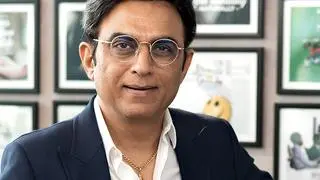The ‘new normal’ in Zoho — an Indian/American software development company with headquarters in Chennai — is that most of the jobs in the company will be created in rural centres, said Sridhar Vembu, Founder and CEO of Zoho. “We will pay the same pay scale as in Chennai,” he added.
“In a rural economy even if one or two per cent of our kind of jobs that are high paying and globally competitive are created , we can bring the rural economy in to a balance,” he said in a virtual conversation with Mahesh Panchagnula, Dean - Alumni & Corporate Relations, IIT Madras, at Sangam, the annual event organised by IIT Madras Alumni Association.
Elaborating on the ‘balance’, he said, today villages export (within India and abroad) only agricultural commodities and import (from within India and abroad) other products like smartphones or motorcycles. This is not a balance. However, bringing in ten jobs in a village that has around 1,000 persons (about 1 per cent) is what the new normal will be. This does not require any sophisticated economic theory to understand.
Issue of imbalance
“Look at what is going on in the villages. One can immediately see the problem. No economic theory is required. What goes out is not sufficient to buy all the things that come in. They are pledging the land and pledging their souls,” he said.
“For me, the real normal is how to address the imbalances that have come up in the rural economy in the last 20-30 years of the old normal. This needs to be corrected by the new normal. This itself is an entrepreneurial opportunity, and a massive opportunity,” said Sridhar. “I am doing all these village experiments not as a philanthropic initiative but as a business venture that will make Zoho a stronger company,” he added.
Within a 10-15 km radius in the Thanjavur district, there are a couple of thousand people who desperately need jobs today. Putting raw talent to work is ‘capital’ today. The job of the entrepreneur is to figure out how to use all these surplus talents in India. This is the biggest opportunity available in India today but the challenge is how to address this problem, he said.







Comments
Comments have to be in English, and in full sentences. They cannot be abusive or personal. Please abide by our community guidelines for posting your comments.
We have migrated to a new commenting platform. If you are already a registered user of TheHindu Businessline and logged in, you may continue to engage with our articles. If you do not have an account please register and login to post comments. Users can access their older comments by logging into their accounts on Vuukle.